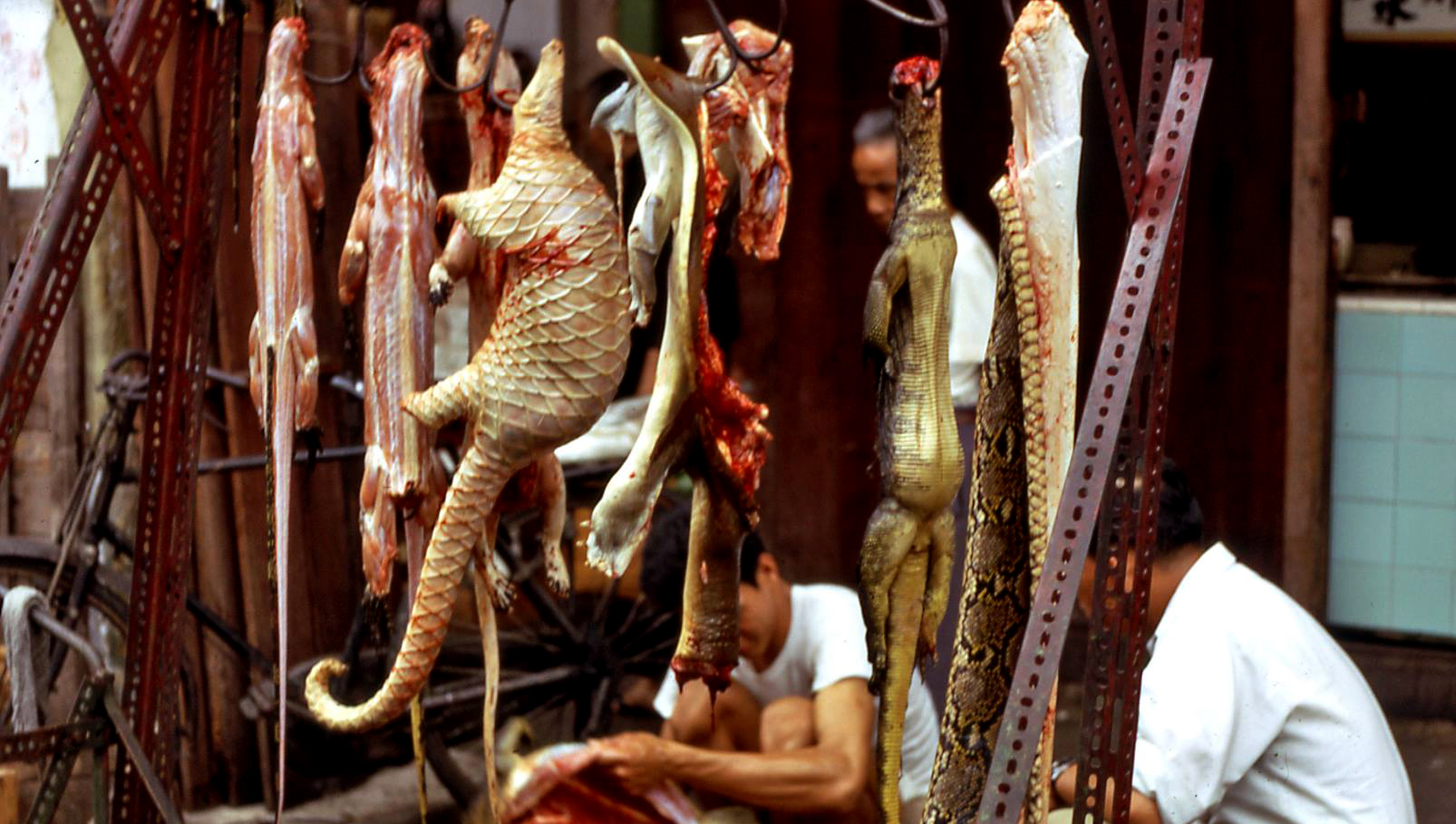Every now and then, the internet throws up some beautiful gems which offer us a glimpse of a bygone Singapore.
Such are the photographs of Theo A. Strijker (now 85 years of age), a Dutchman who was employed by Heineken to work at the Anchor Brewery in Alexandra area.
He and his wife, Lies Strijker-Klaij (76 years of age) lived in Singapore between 1961 and 1969, and within that time period, captured the everyday and ordinary life here in our tropical island city.
The couple agreed to share their photos with us, so brace yourselves -- they're gorgeous.
Market
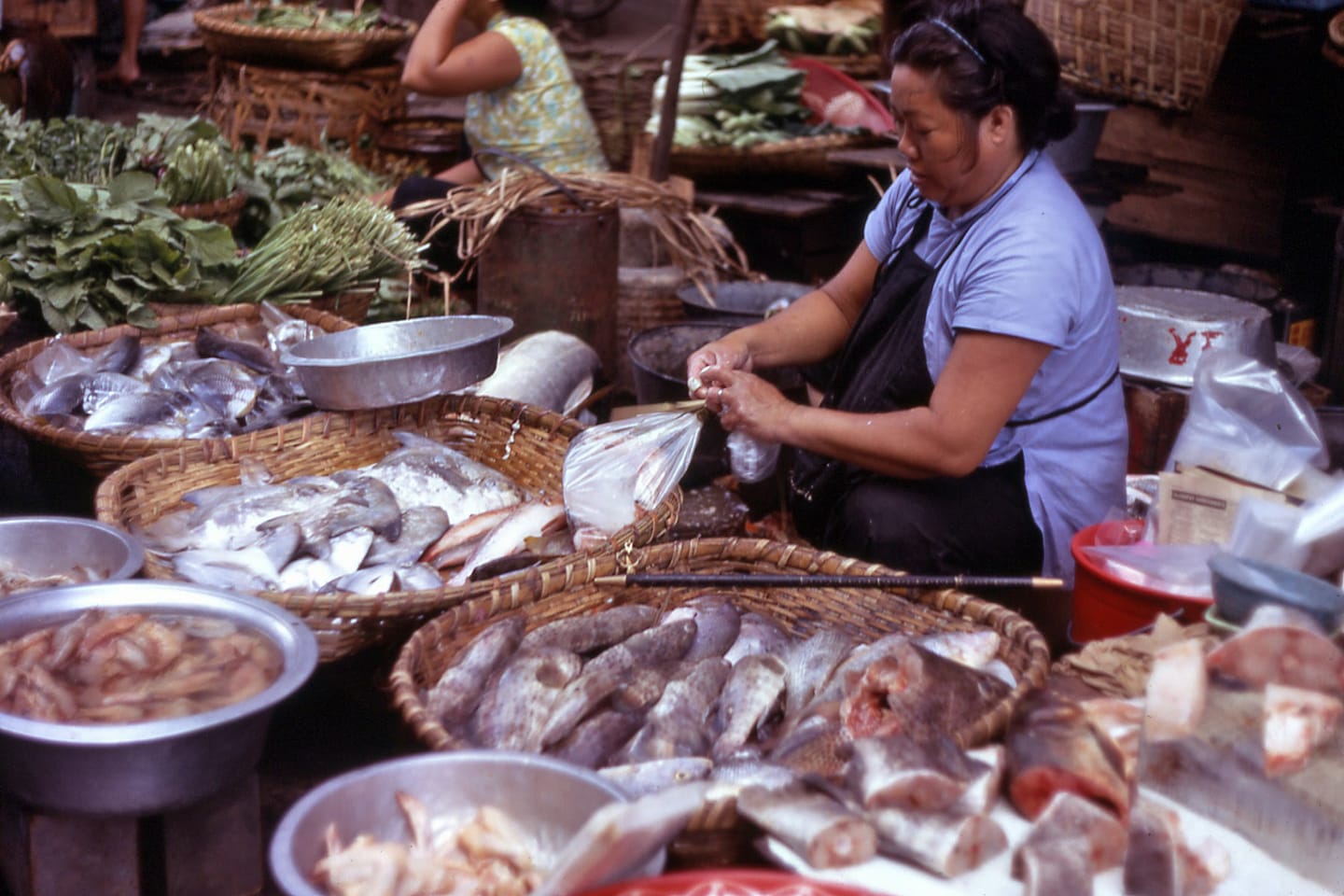 Fishmonger. Image courtesy of Theo A. Strijker.
Fishmonger. Image courtesy of Theo A. Strijker.
To the market? Not when the market is right outside your doorstep.
Aside from markets such as Lau Pa Sat and Ellenborough Market, one could also buy daily produce from hawkers on the street. Definitely fresh, but not for you if you're accustomed to getting your fish from a freezer.
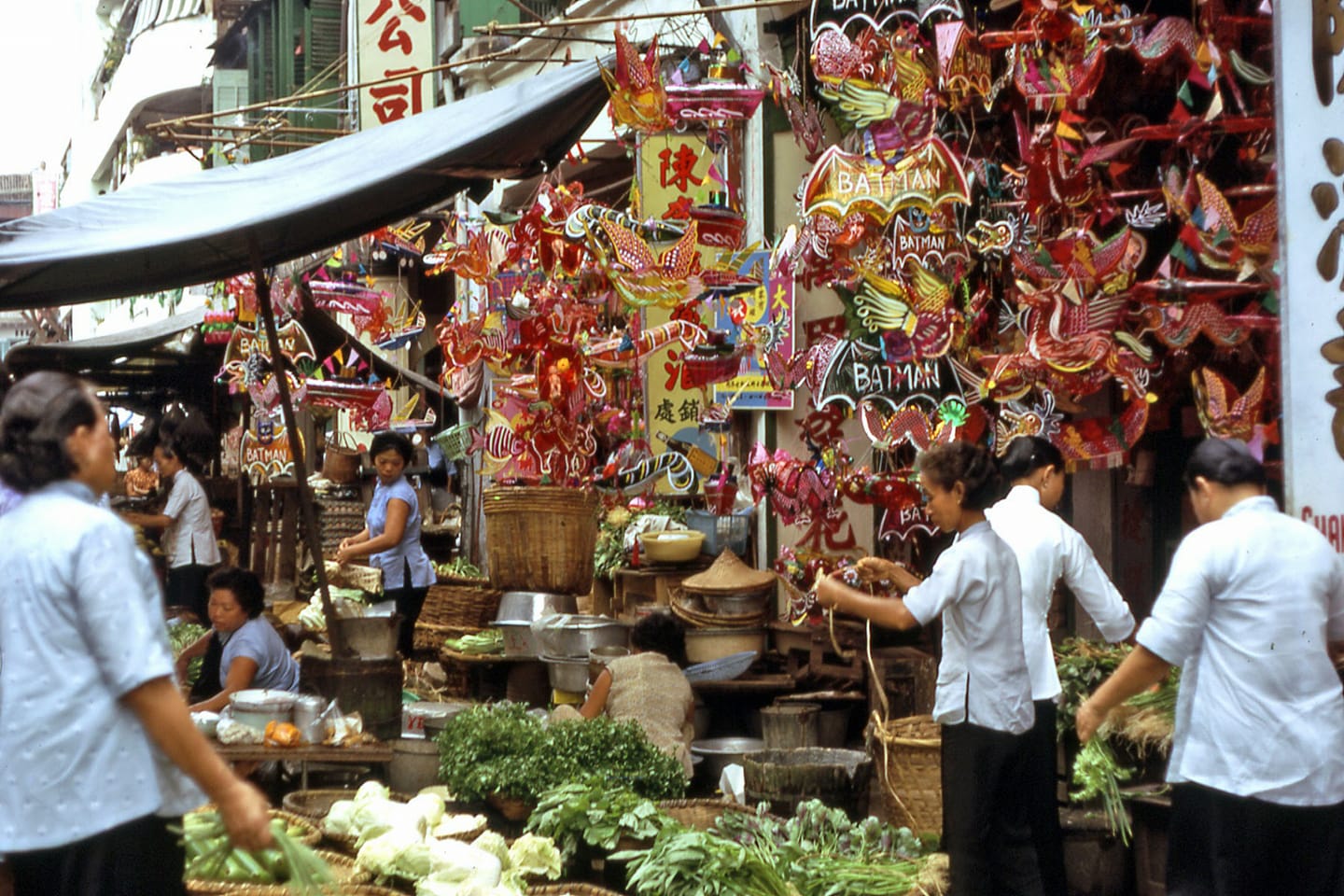 Market scene. Image courtesy of Theo A. Strijker.
Market scene. Image courtesy of Theo A. Strijker.
We'd just like to point out that those are Batman lanterns, possibly for the Mid Autumn Festival.
Look closely at the right side and you'll see Amahs (domestic worker) buying vegetables to bring back home to their employers. Amahs are recognisable by their white and black outfits.
Indian community
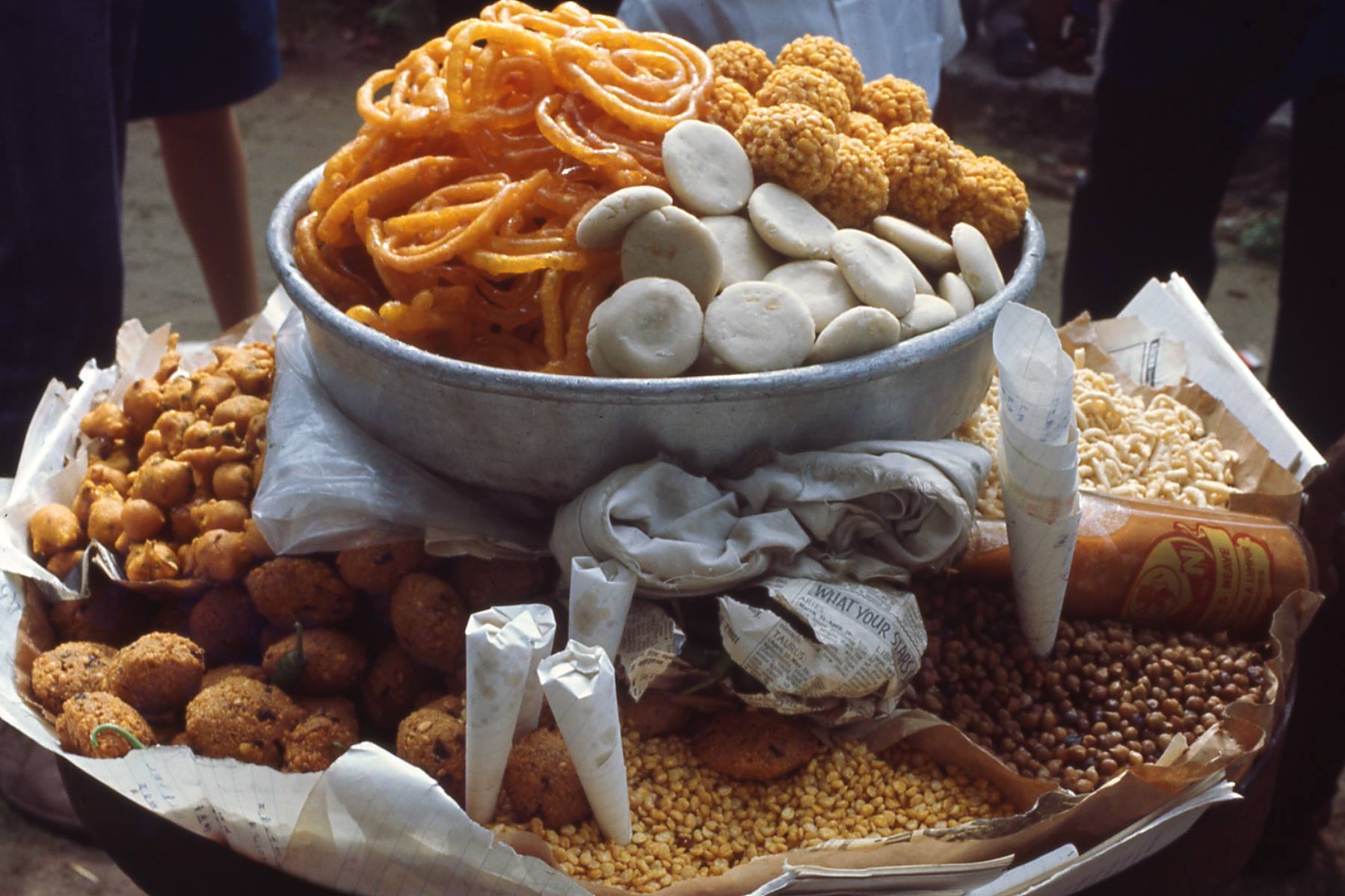 Indian sweets, muruku, kacang puteh, and vadai. Image courtesy of Theo A. Strijker.
Indian sweets, muruku, kacang puteh, and vadai. Image courtesy of Theo A. Strijker.
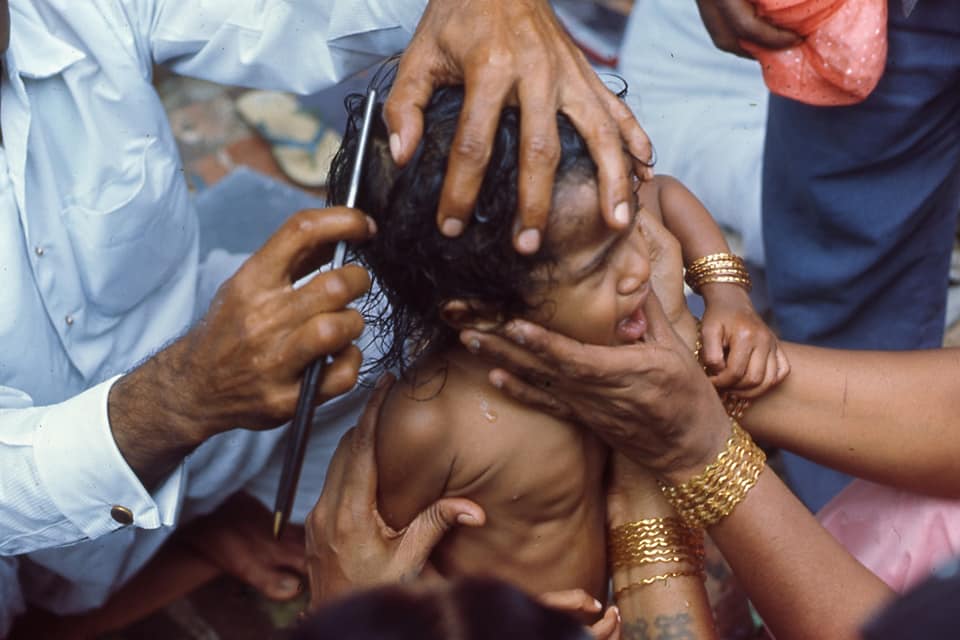 Child getting a haircut during the Thaipusam festival. Image courtesy of Theo A. Strijker.
Child getting a haircut during the Thaipusam festival. Image courtesy of Theo A. Strijker.
Chinese community
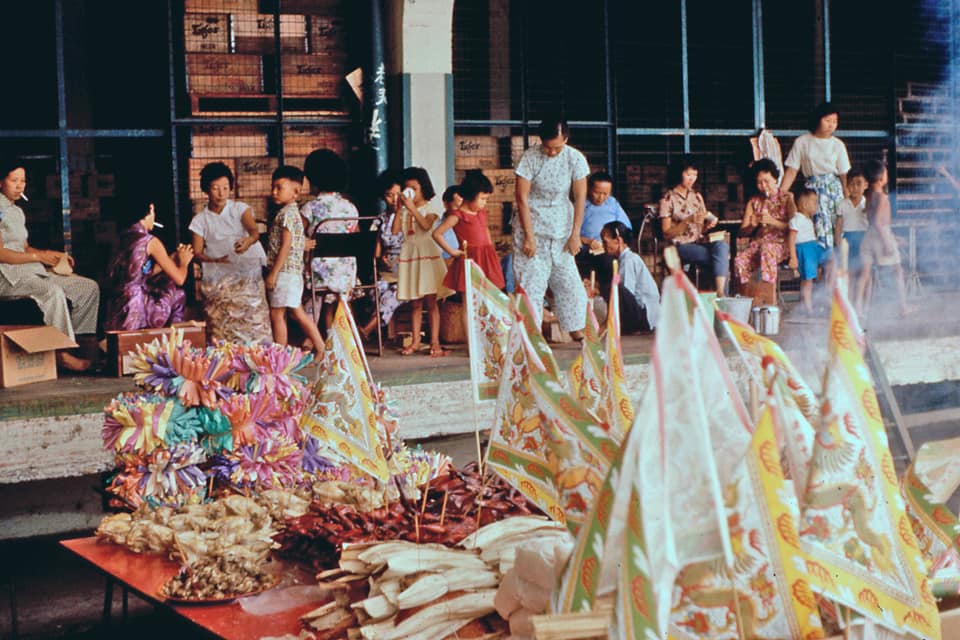 Hungry Ghost Festival, with plenty of food offerings in the foreground. Image courtesy of Theo A. Strijker.
Hungry Ghost Festival, with plenty of food offerings in the foreground. Image courtesy of Theo A. Strijker.
[related_story]
Hawkers
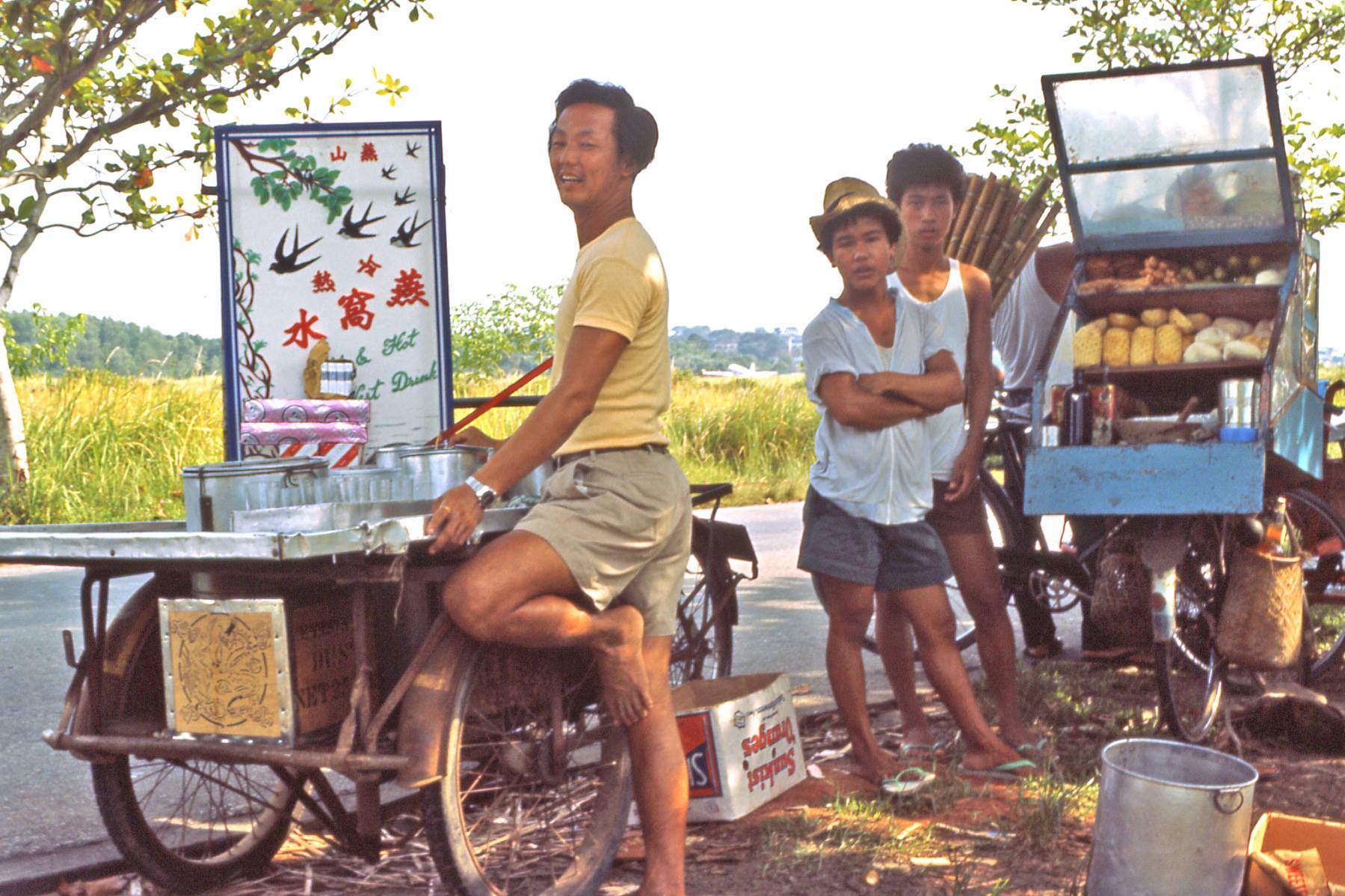 Drinks and food hawkers. Image courtesy of Theo A. Strijker.
Drinks and food hawkers. Image courtesy of Theo A. Strijker.
The photo above show itinerant hawkers selling bird's nest drink and rojak. These travelling hawkers were quite a common sight on the streets of Singapore moving from neighbourhood to neighbourhood to cater to hungry customers.
Exotic meats
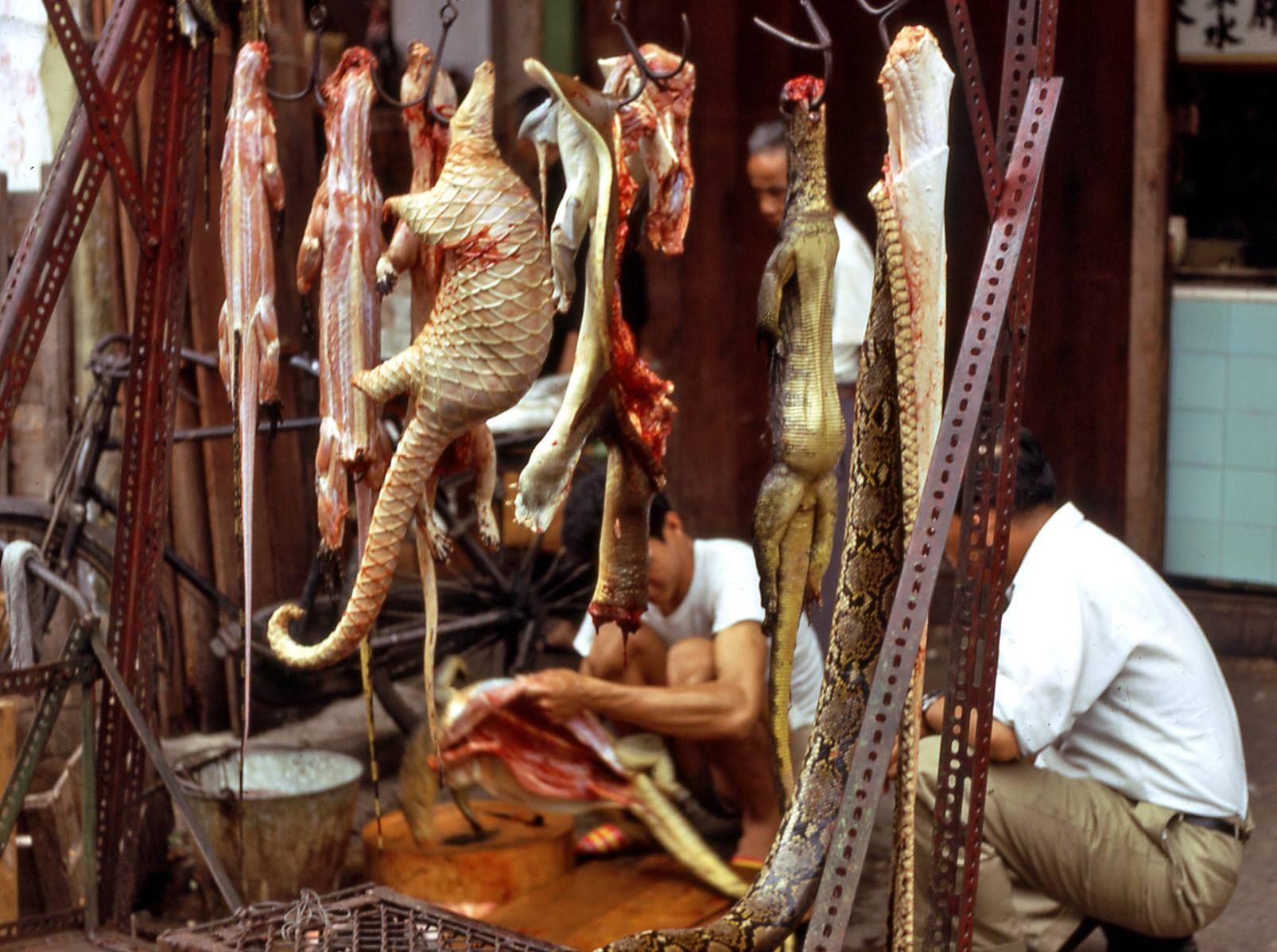 Hawkers selling fresh pangolin meat. Image courtesy of Theo A. Strijker.
Hawkers selling fresh pangolin meat. Image courtesy of Theo A. Strijker.
Back when wildlife was in abundance, exotic creatures such as the pangolin and tapirs were commonly spotted in the market. Pangolins, which are endangered today, were (and still are) prized for their scales and meat.
Accounts tell of how these live creatures could be easily spotted on the roadside anywhere along the Malaysian peninsula.
Fortunately, you can't find the endangered pangolin, nor snake meat being sold on the streets today, but this photo shows what a different world the 60s was.
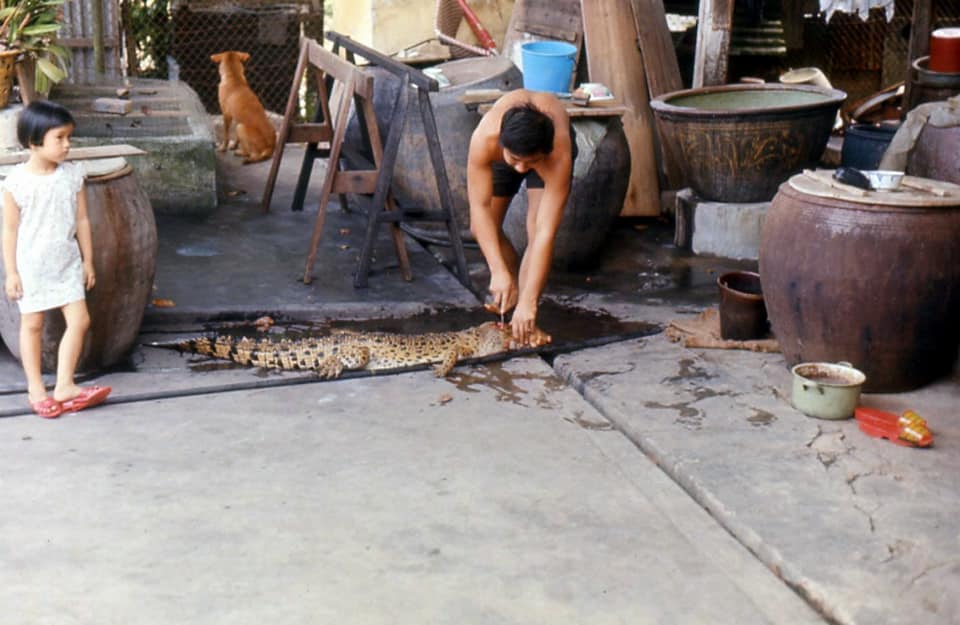 Killing a crocodile. Image courtesy of Theo A. Strijker.
Killing a crocodile. Image courtesy of Theo A. Strijker.
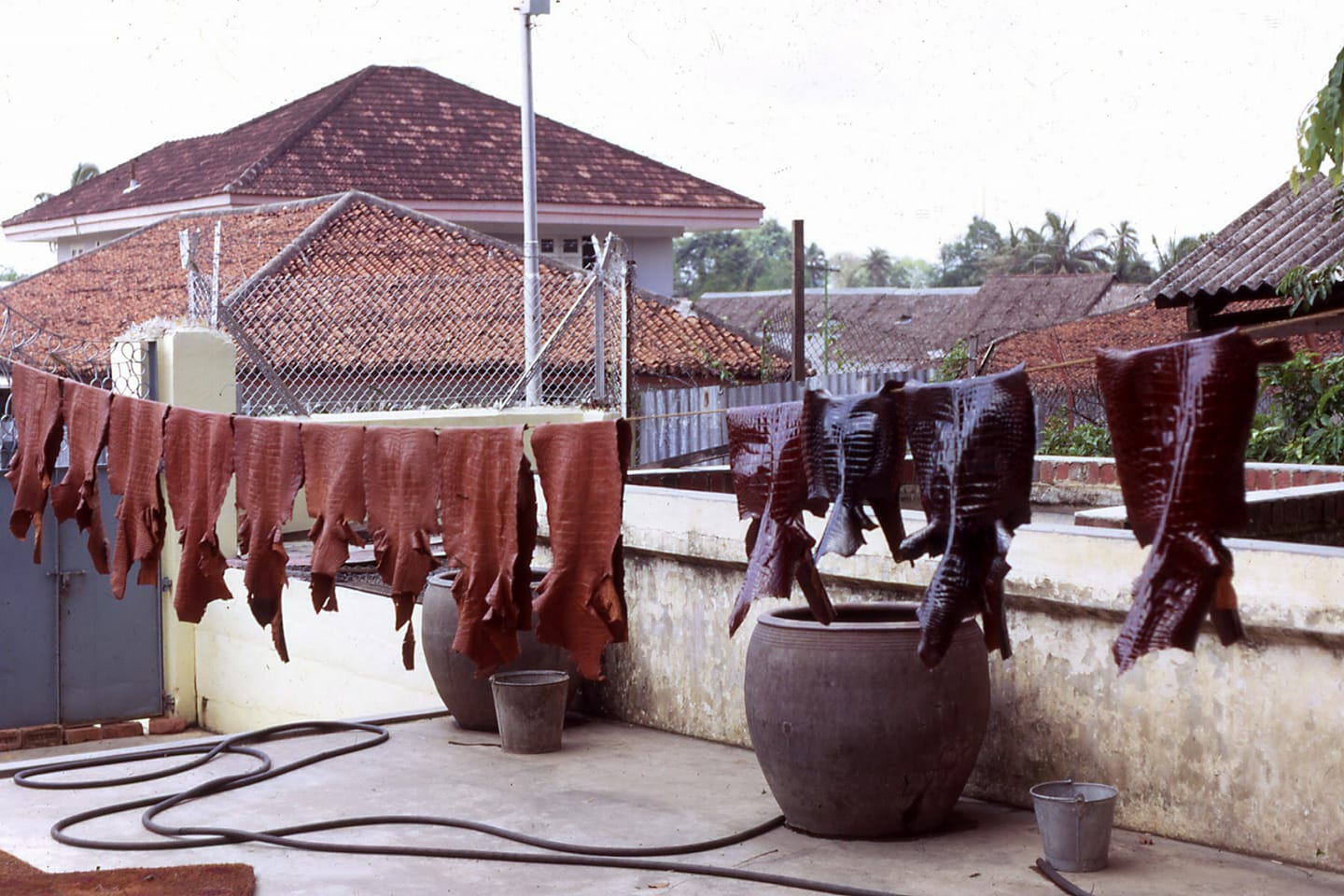 Crocodile skins drying. Image courtesy of Theo A. Strijker.
Crocodile skins drying. Image courtesy of Theo A. Strijker.
Crocodile farms were plenty in Singapore and naturally, the killing of a crocodile for meat and skin was common enough then. Today, you can still find a crocodile farm in Singapore.
Fishing village
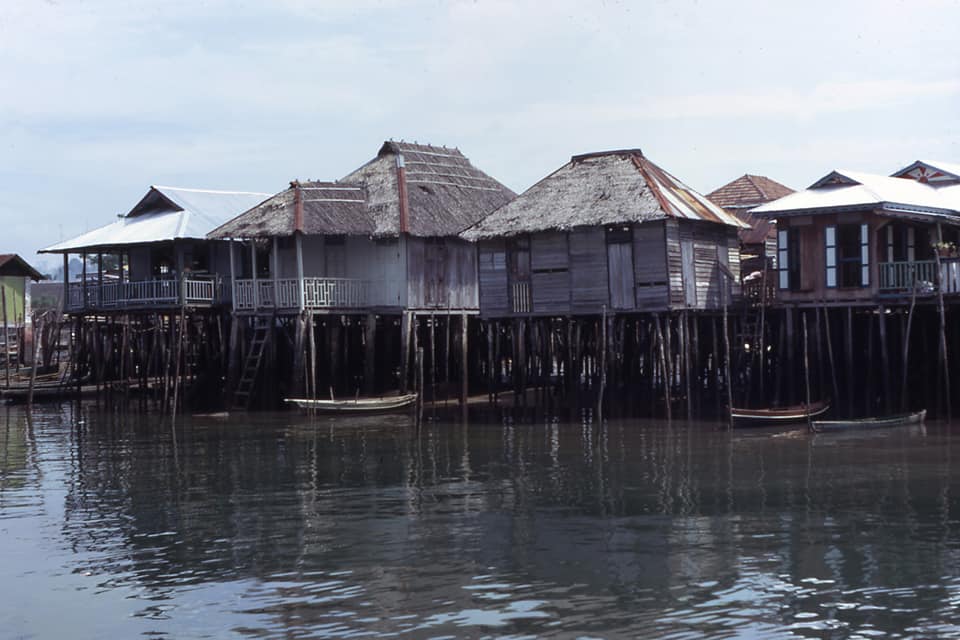 Kelong along the Singapore shore. Image courtesy of Theo A. Strijker.
Kelong along the Singapore shore. Image courtesy of Theo A. Strijker.
Finally a shot of an actual fishing village!
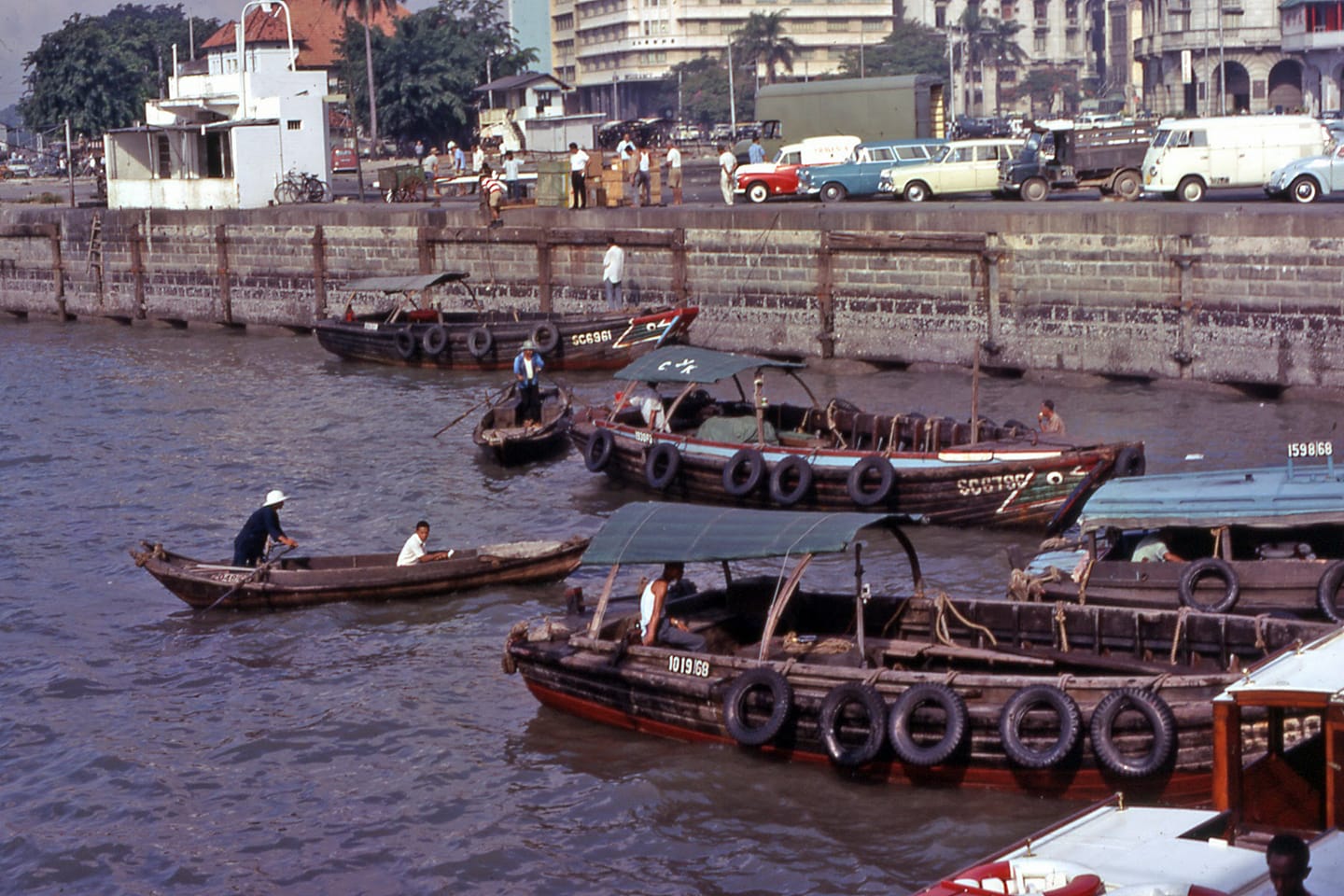 Water taxis. Image courtesy of Theo A. Strijker.
Water taxis. Image courtesy of Theo A. Strijker.
Looks picturesque enough, but oral accounts tell us that the Singapore river back then was so smelly, you could smell it even before you see it.
Anchor Brewery
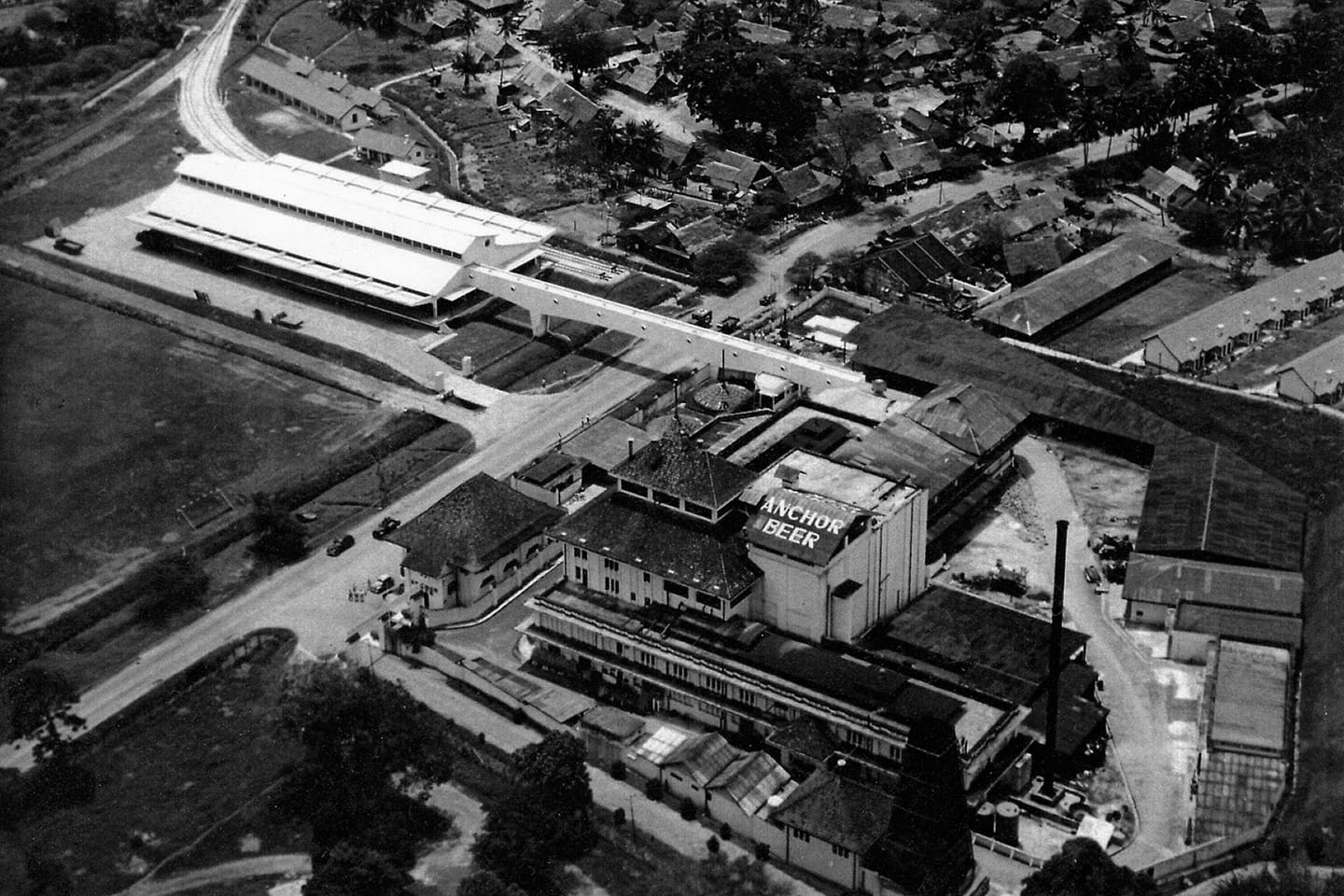 The Anchor Brewery. Image courtesy of Theo A. Strijker.
The Anchor Brewery. Image courtesy of Theo A. Strijker.
The Anchor Brewery where our talented photographer worked. Notice the train tracks leading off from the brewery storehouse in the top left? That is for a cargo train to deliver beer to the city (see image below).
Today, the site of the Anchor Brewery is occupied by Anchor Point, while the storehouse is where Ikea now stands.
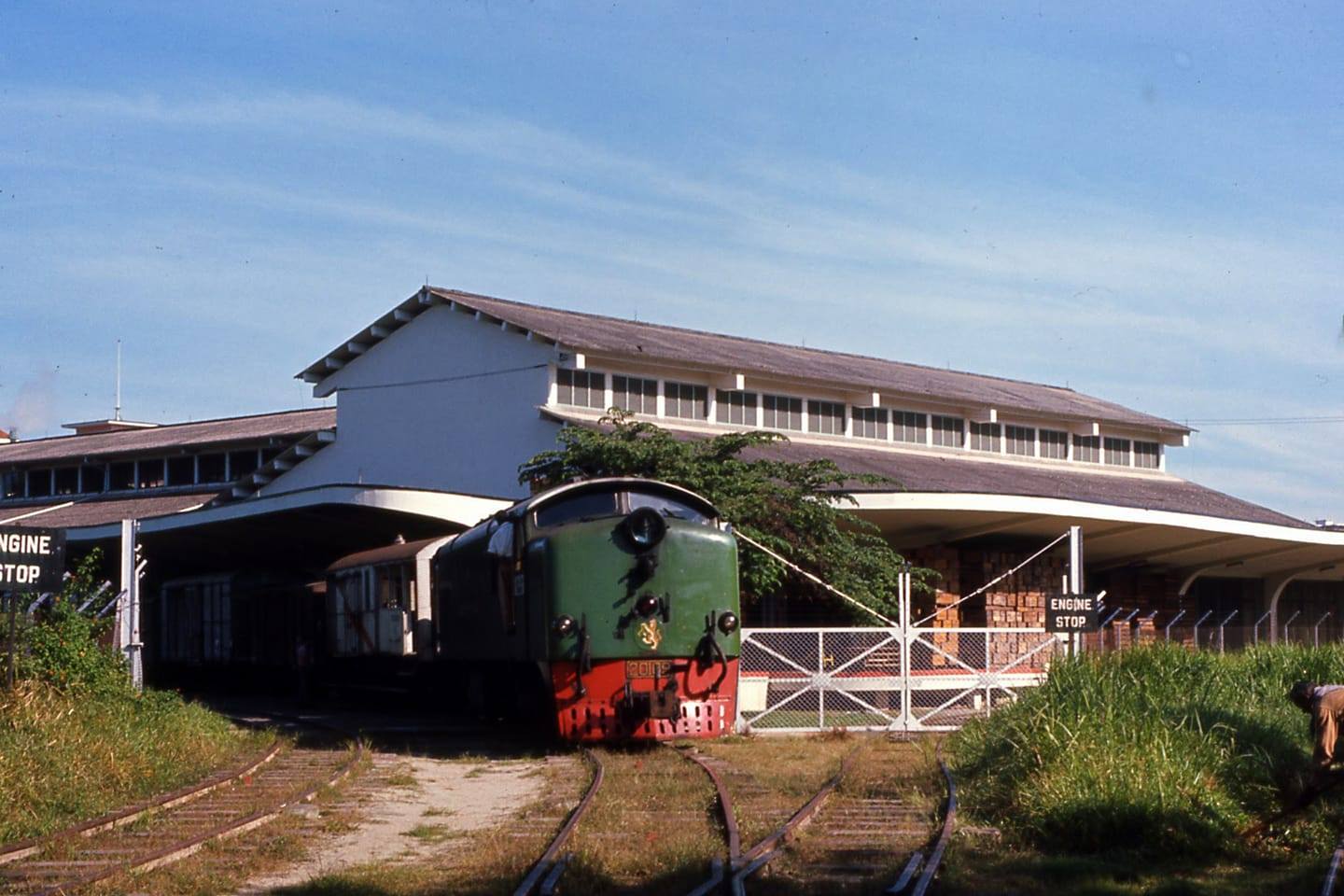 Cargo train loaded with beer, heading for the city and to the rest of Malaysia. Image courtesy of Theo A. Strijker.
Cargo train loaded with beer, heading for the city and to the rest of Malaysia. Image courtesy of Theo A. Strijker.
[related_story]
Queenstown
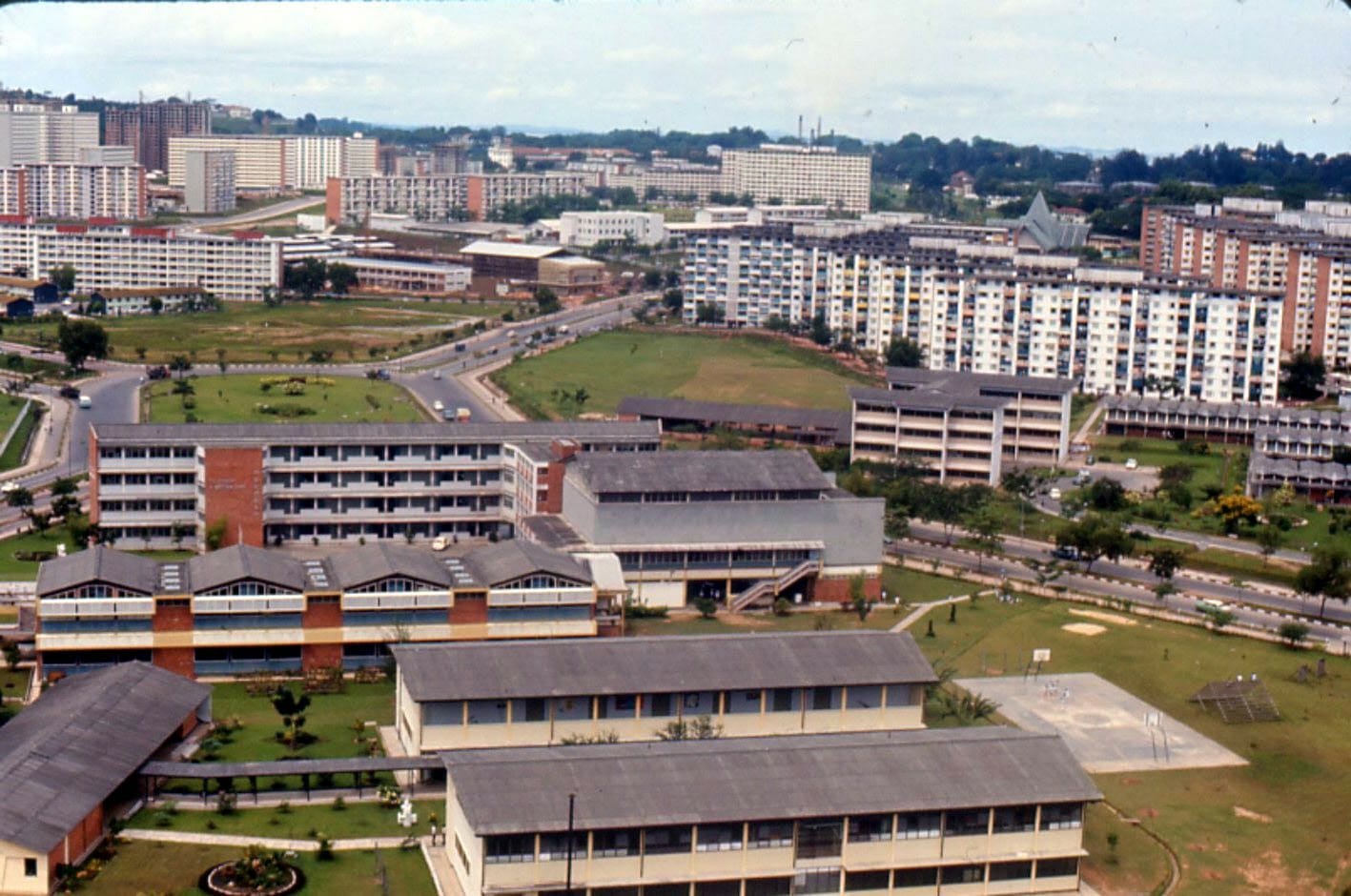 Blocks of flats at Queensway. Image courtesy of Theo A. Strijker.
Blocks of flats at Queensway. Image courtesy of Theo A. Strijker.
This is the Queensway/Commonwealth area. If you look closely at the top right hand corner, you can spot the 'folded' roof of the Church of the Blessed Sacrament.
Isn't it amazing how low-lying these blocks of flats are?
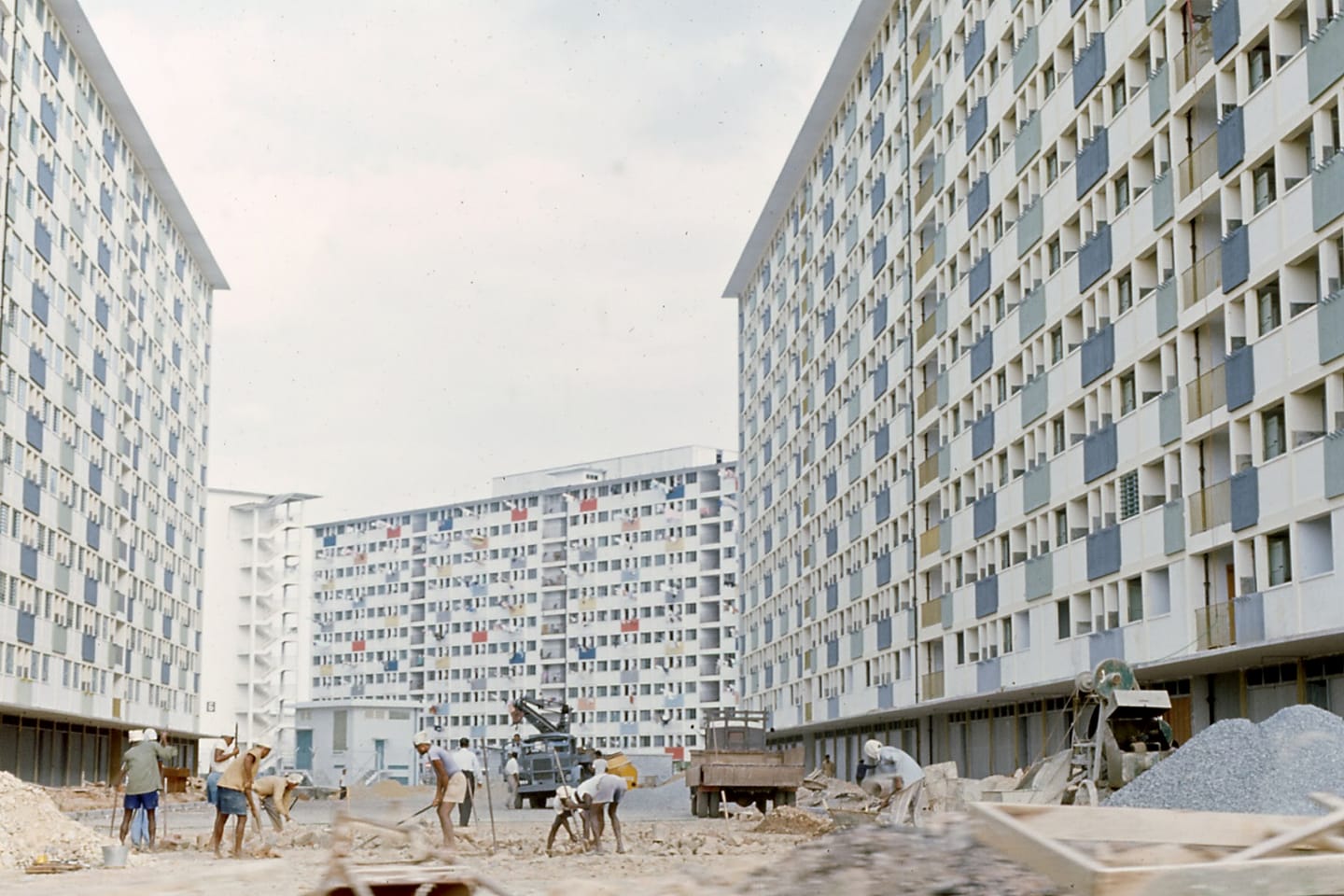 HDB blocks at Commonwealth Close. Image courtesy of Theo A. Strijker.
HDB blocks at Commonwealth Close. Image courtesy of Theo A. Strijker.
New blocks in the 60s, which honestly, would not look out of place today when compared to BTOs.
Kampong Siglap
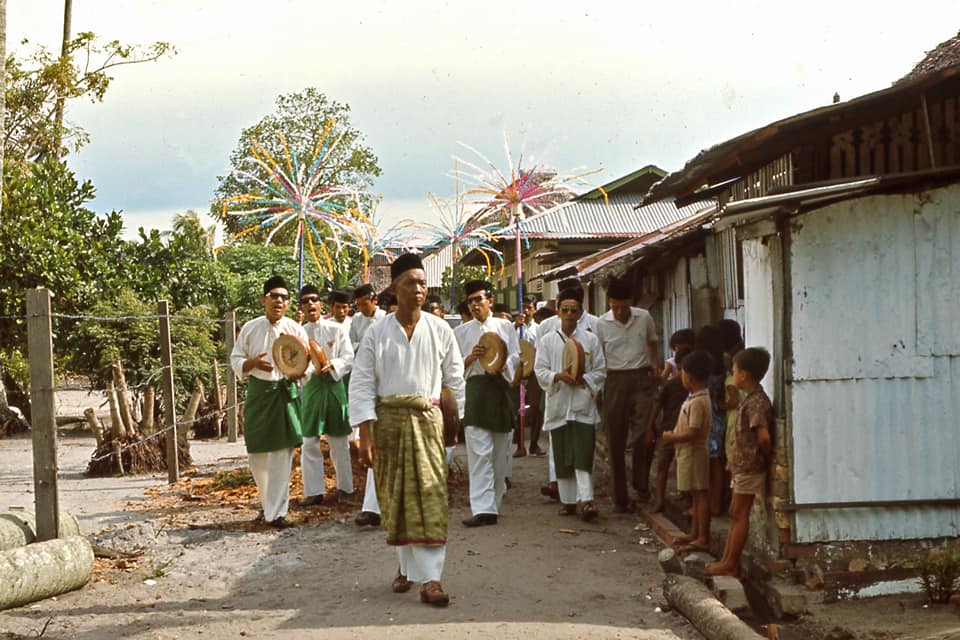 Malay wedding in Siglap. Image courtesy of Theo A. Strijker.
Malay wedding in Siglap. Image courtesy of Theo A. Strijker.
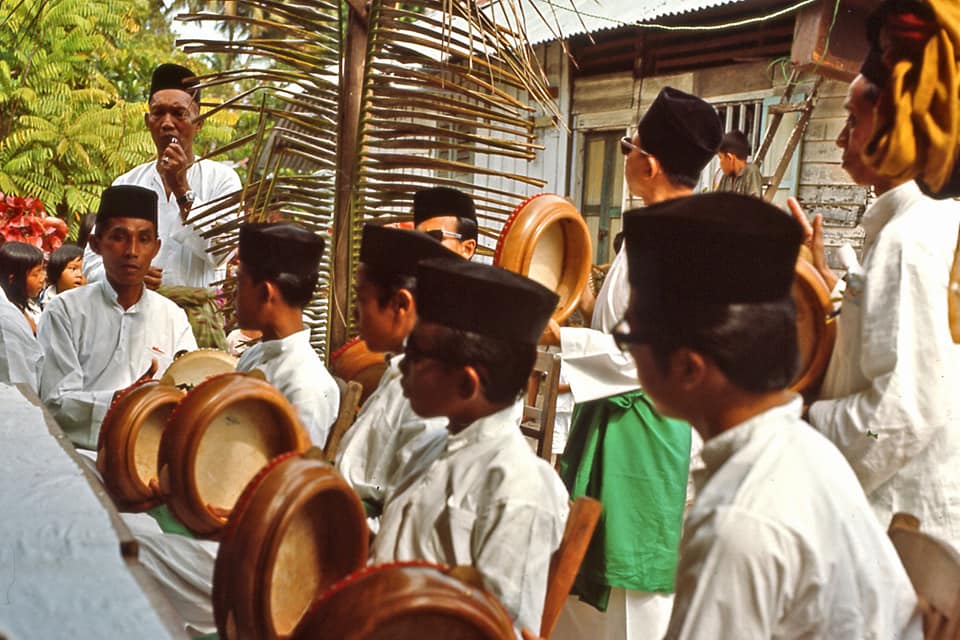 Kompang ensemble at a Malay wedding. Image courtesy of Theo A. Strijker.
Kompang ensemble at a Malay wedding. Image courtesy of Theo A. Strijker.
These are shots of a Malay wedding which took place in a kampong in Siglap, featuring a kompang (traditional Malay drum) ensemble.
Zoo
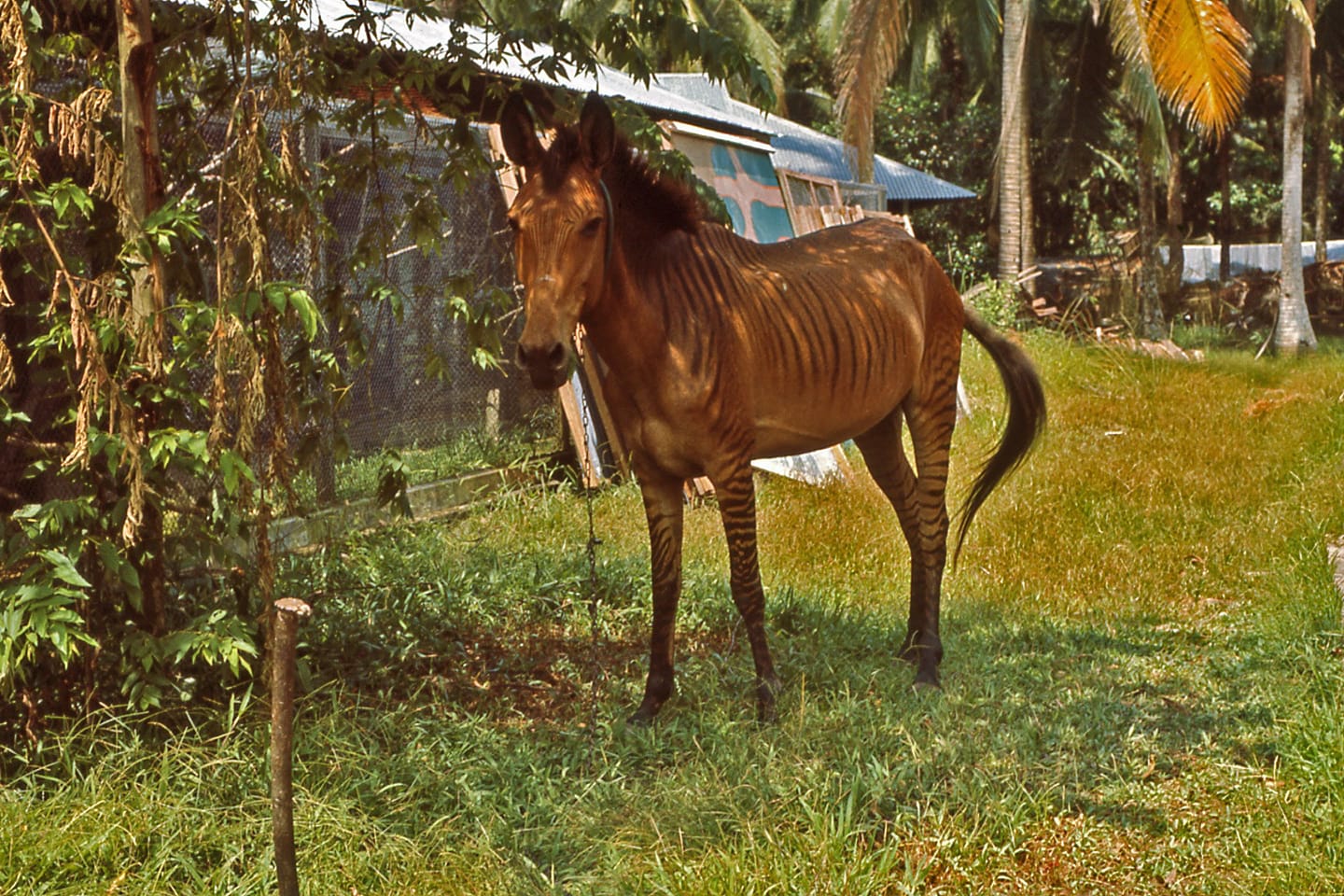 A zorse? A hebra? Image courtesy of Theo A. Strijker.
A zorse? A hebra? Image courtesy of Theo A. Strijker.
A cute horse/zebra hybrid type spotted by Strijker during a trip to a small zoo here.
Sago Lane
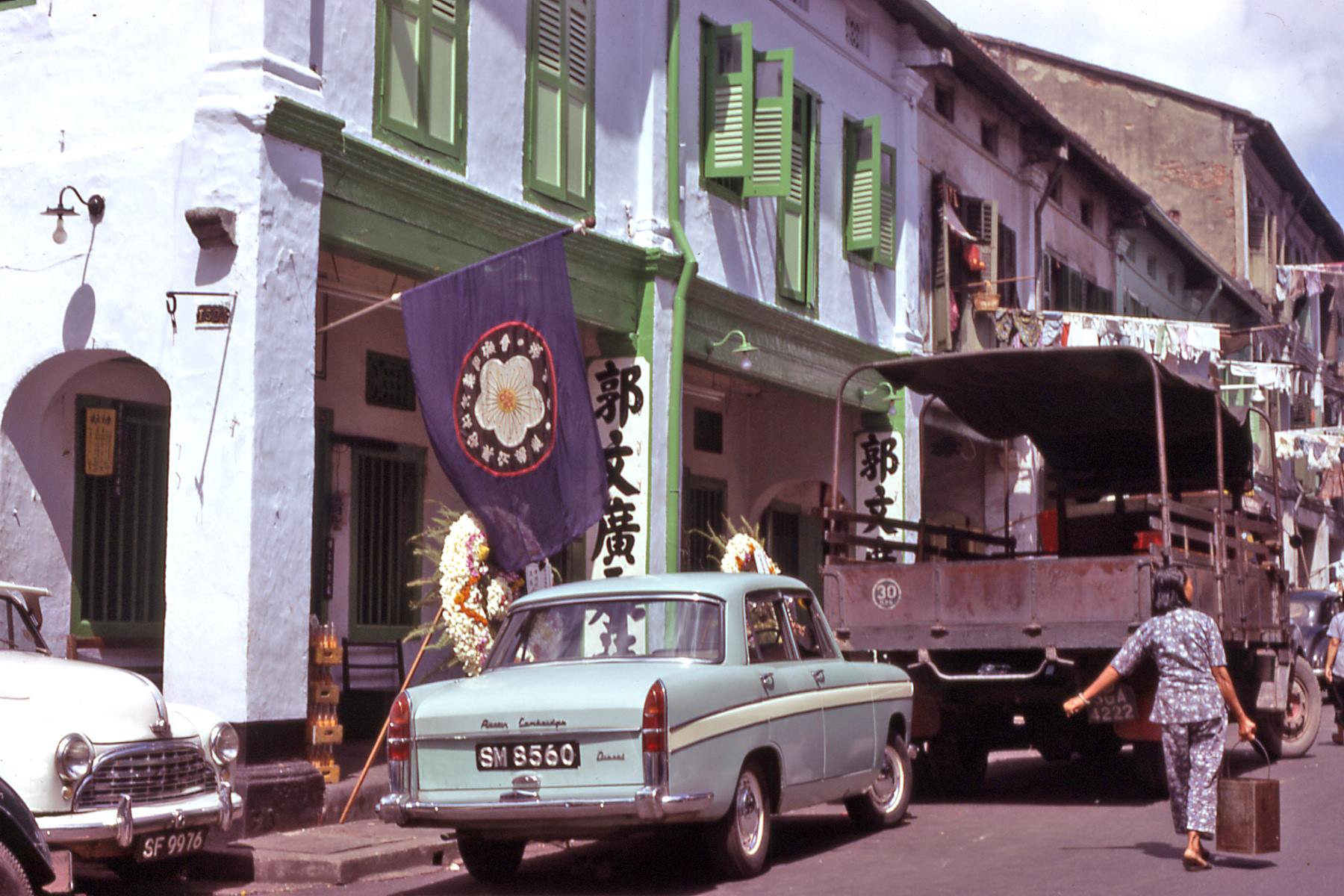 Sago Lane. Image courtesy of Theo A. Strijker.
Sago Lane. Image courtesy of Theo A. Strijker.
The Sago Lane of today is a pale shadow of the infamous Street of Death that older folks would be familiar with - where poor, dying people went to wait for their end.
Old shophouses
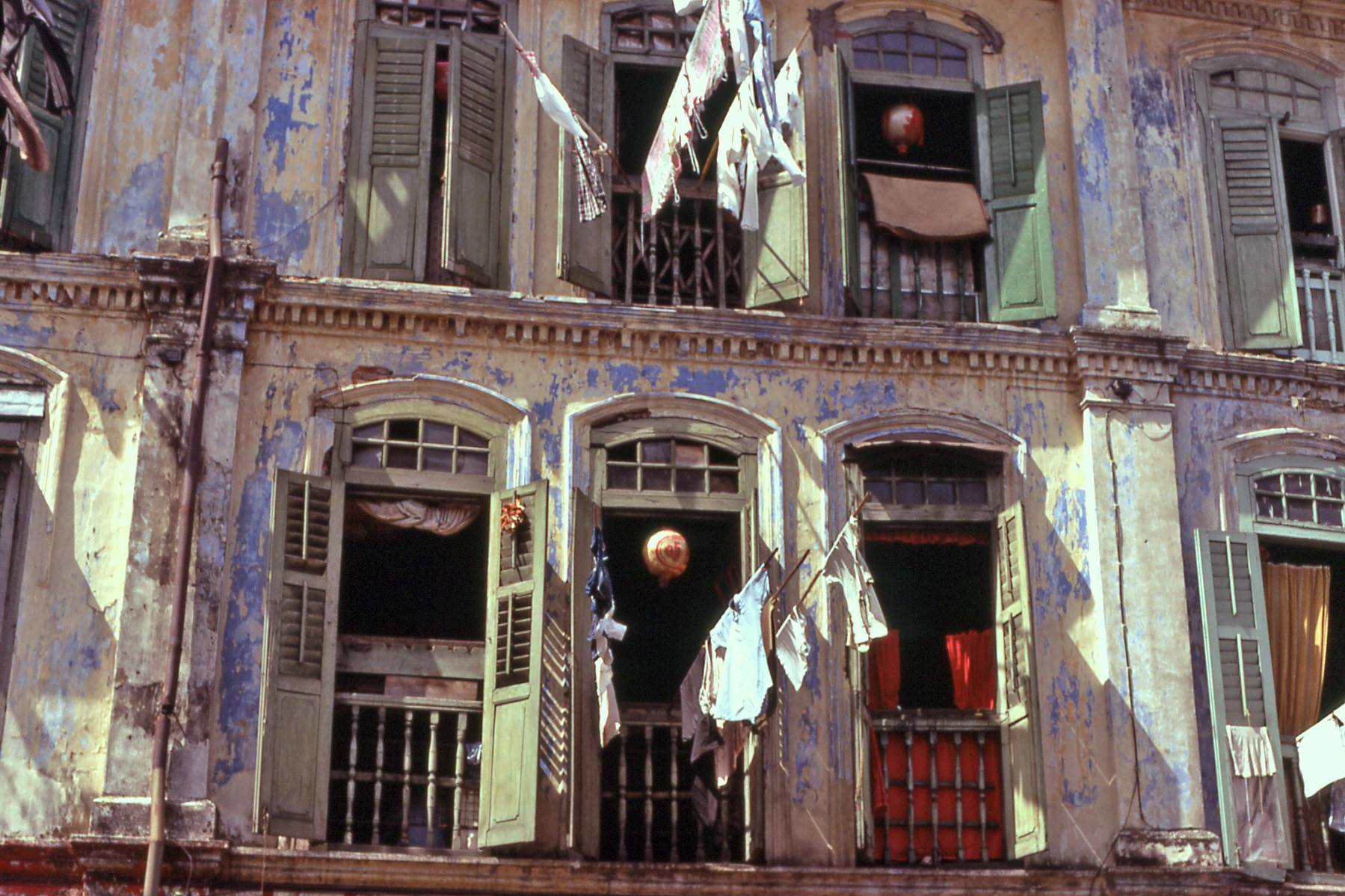
As you can imagine, dilapidated architecture was quite common in the city after the war; many people were trying to rebuild their lives to start anew.
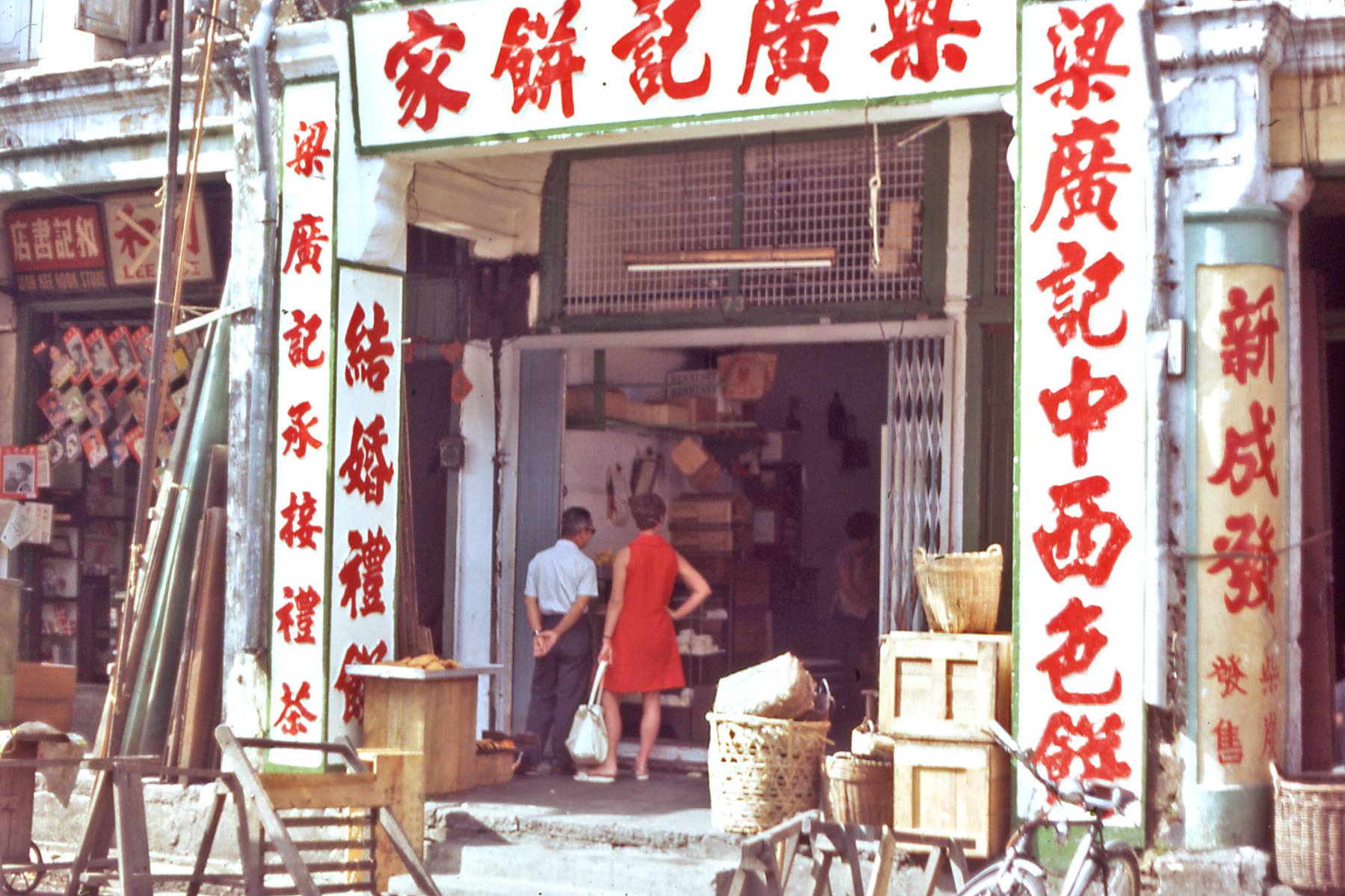 A biscuit shop. Image courtesy of Theo A. Strijker.
A biscuit shop. Image courtesy of Theo A. Strijker.
Buddhist Society
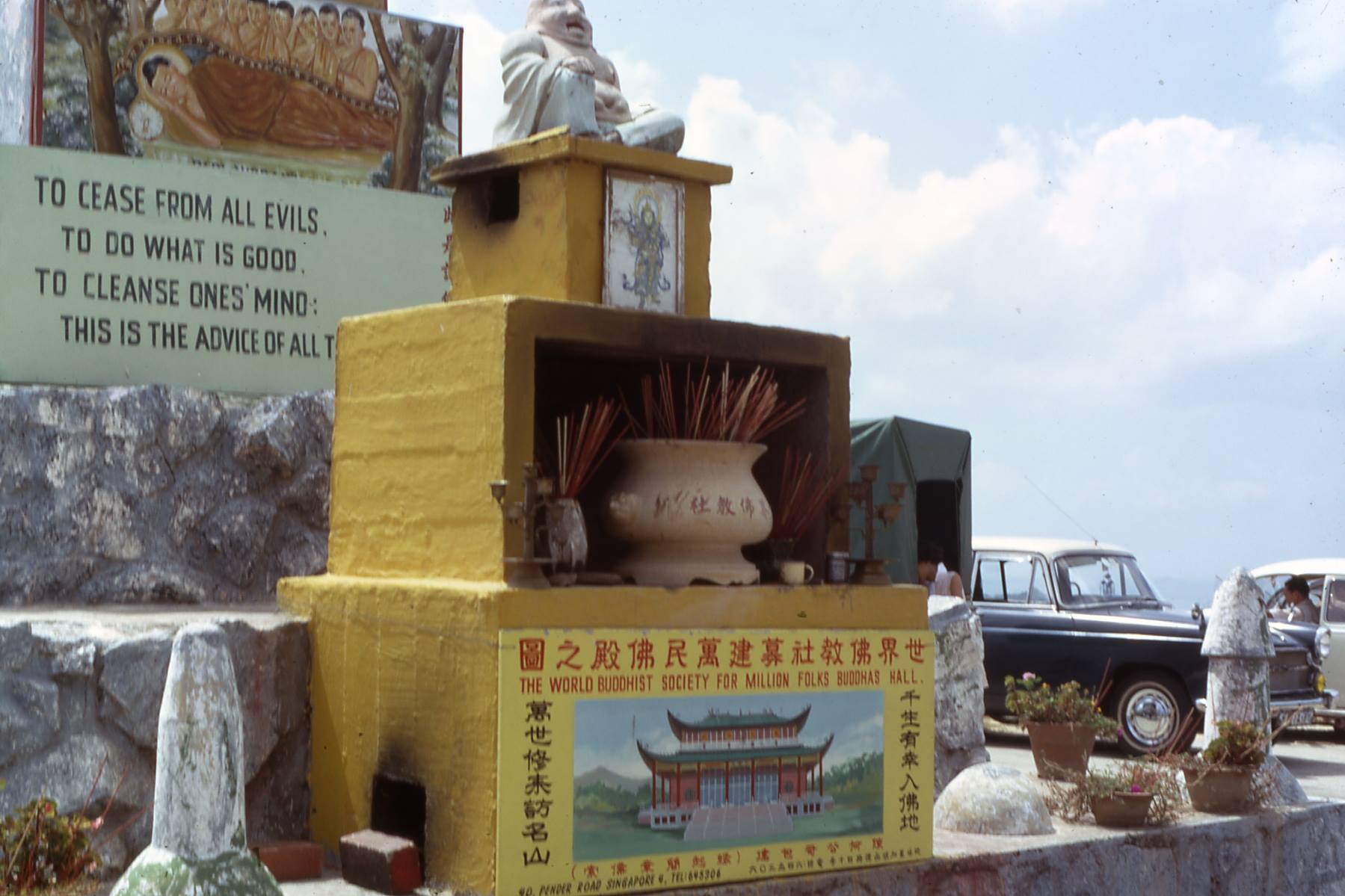 Buddhist Society. Image courtesy of Theo A. Strijker.
Buddhist Society. Image courtesy of Theo A. Strijker.
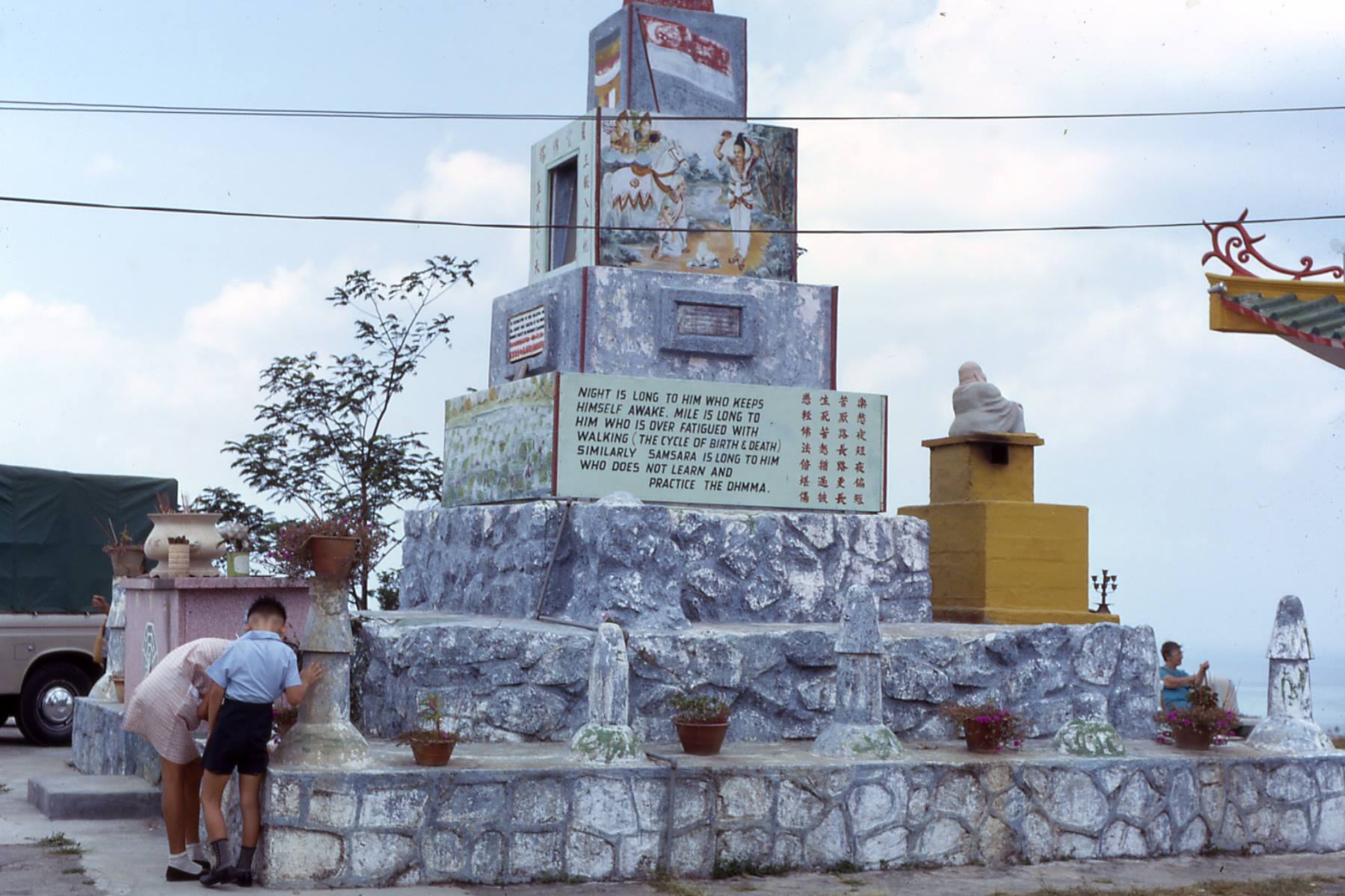 Buddhist Society. Image courtesy of Theo A. Strijker.
Buddhist Society. Image courtesy of Theo A. Strijker.
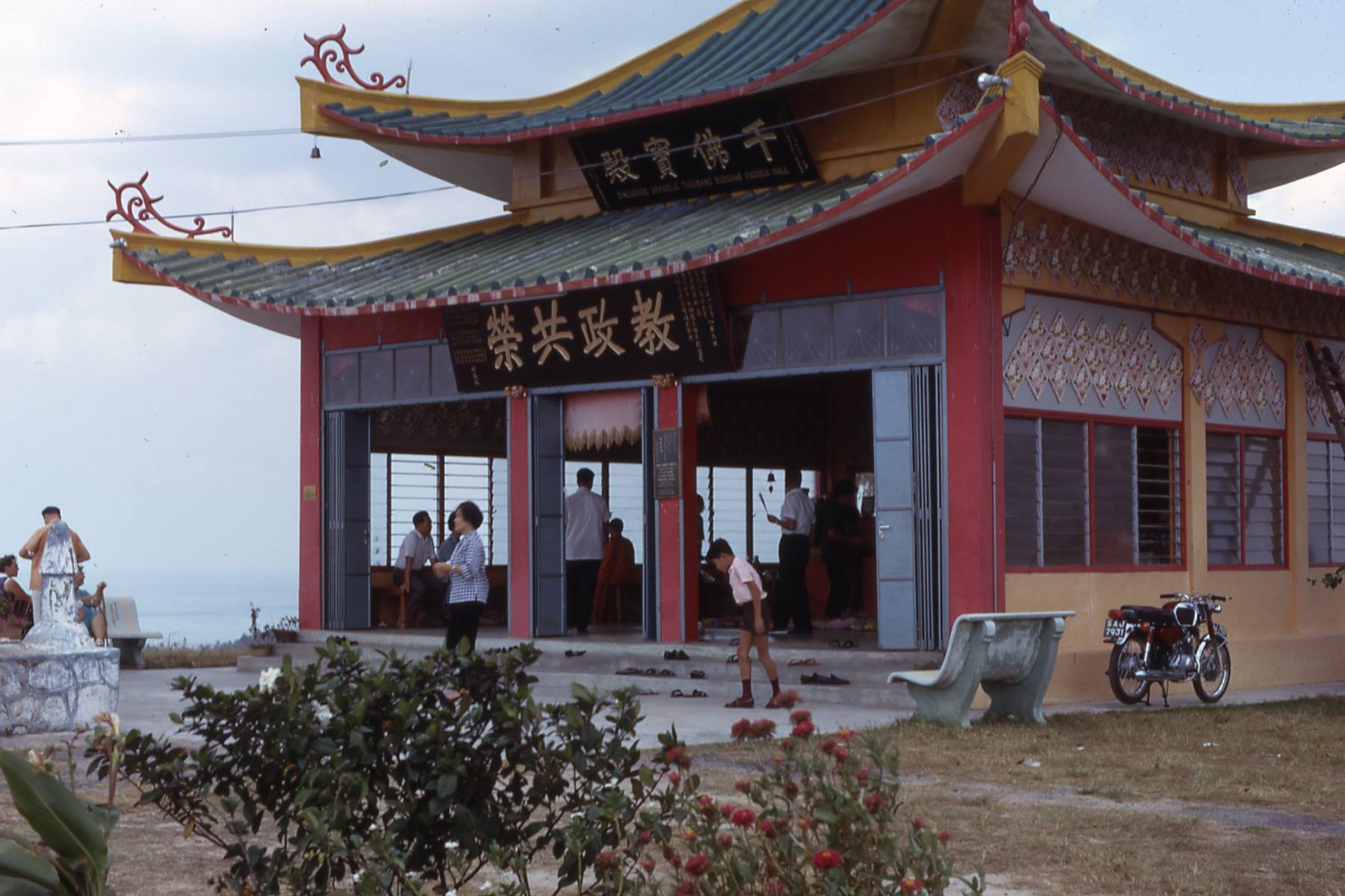 Buddhist Society. Image courtesy of Theo A. Strijker.
Buddhist Society. Image courtesy of Theo A. Strijker.
We don't know much about this Buddhist Society except that it used to be situated along Pender Road, near the sea.
A big thank you to Strijker and his wife for sharing these beautiful photos. We hope you enjoyed them too!
Here are some interesting articles you should check out next:
Quiz: Which kind of Singaporean social media user are you?
Two aunties visit Changi Airport T4, compare it to Paya Lebar airport
Top image courtesy of Theo A. Strijker.
If you like what you read, follow us on Facebook, Instagram, Twitter and Telegram to get the latest updates.
